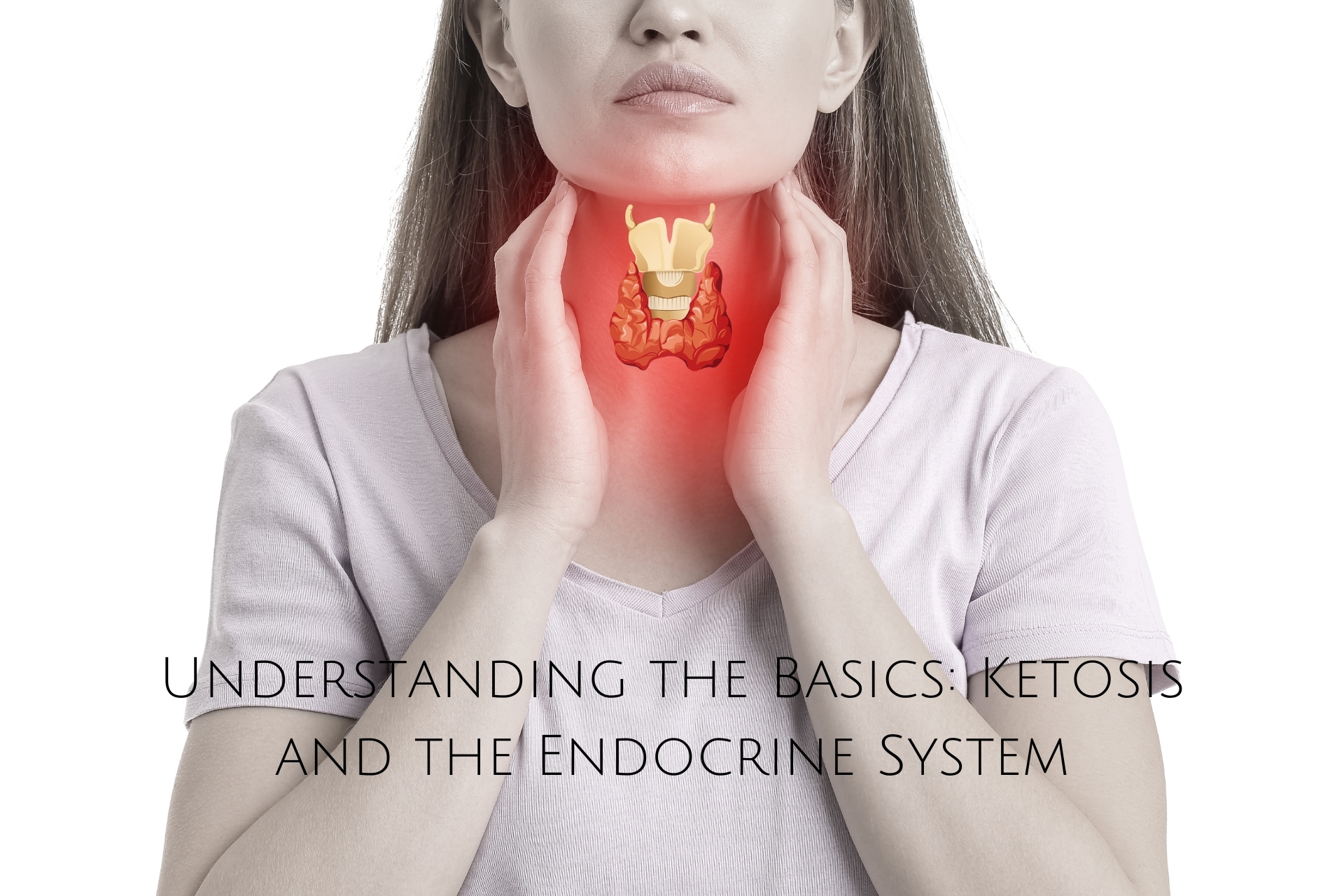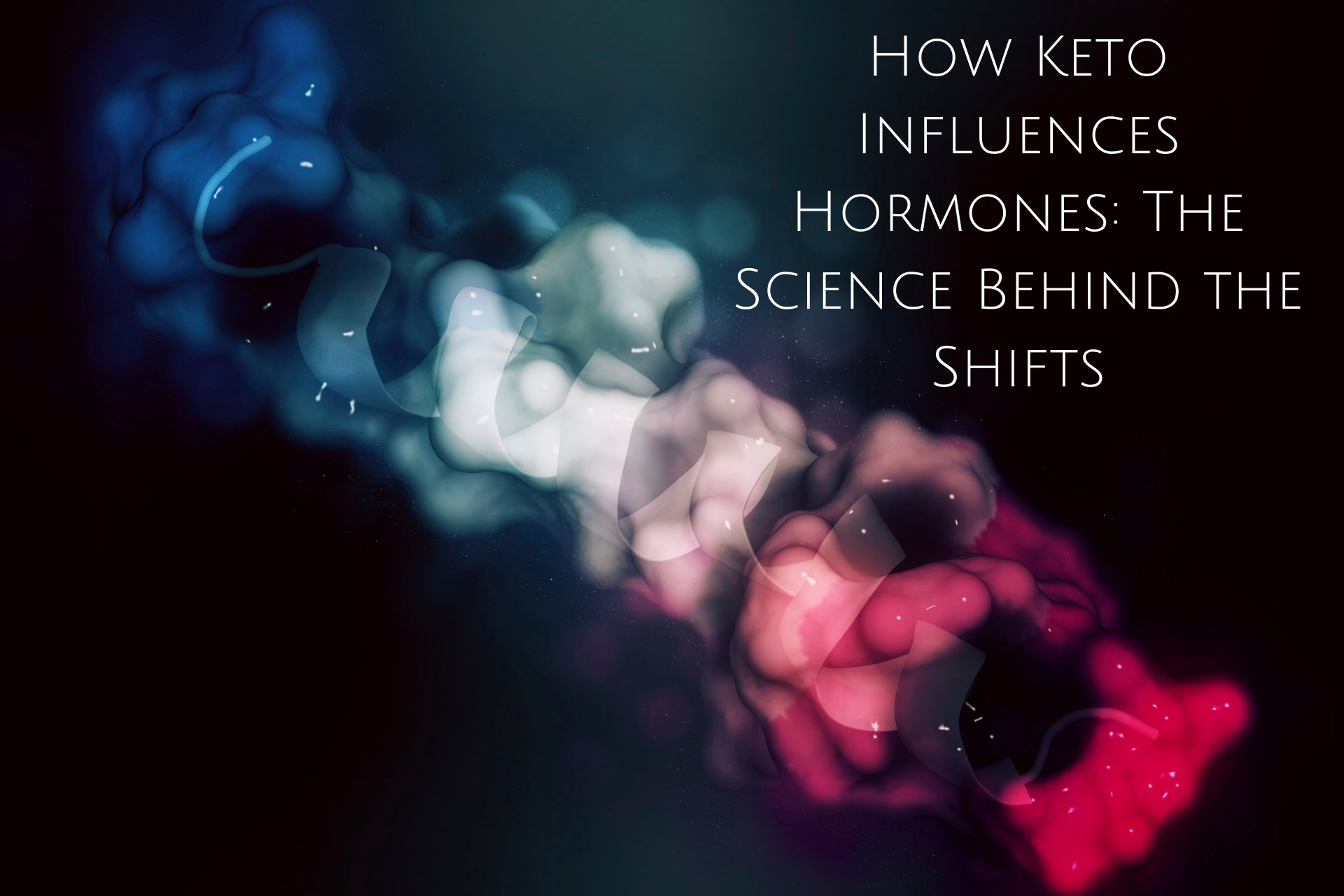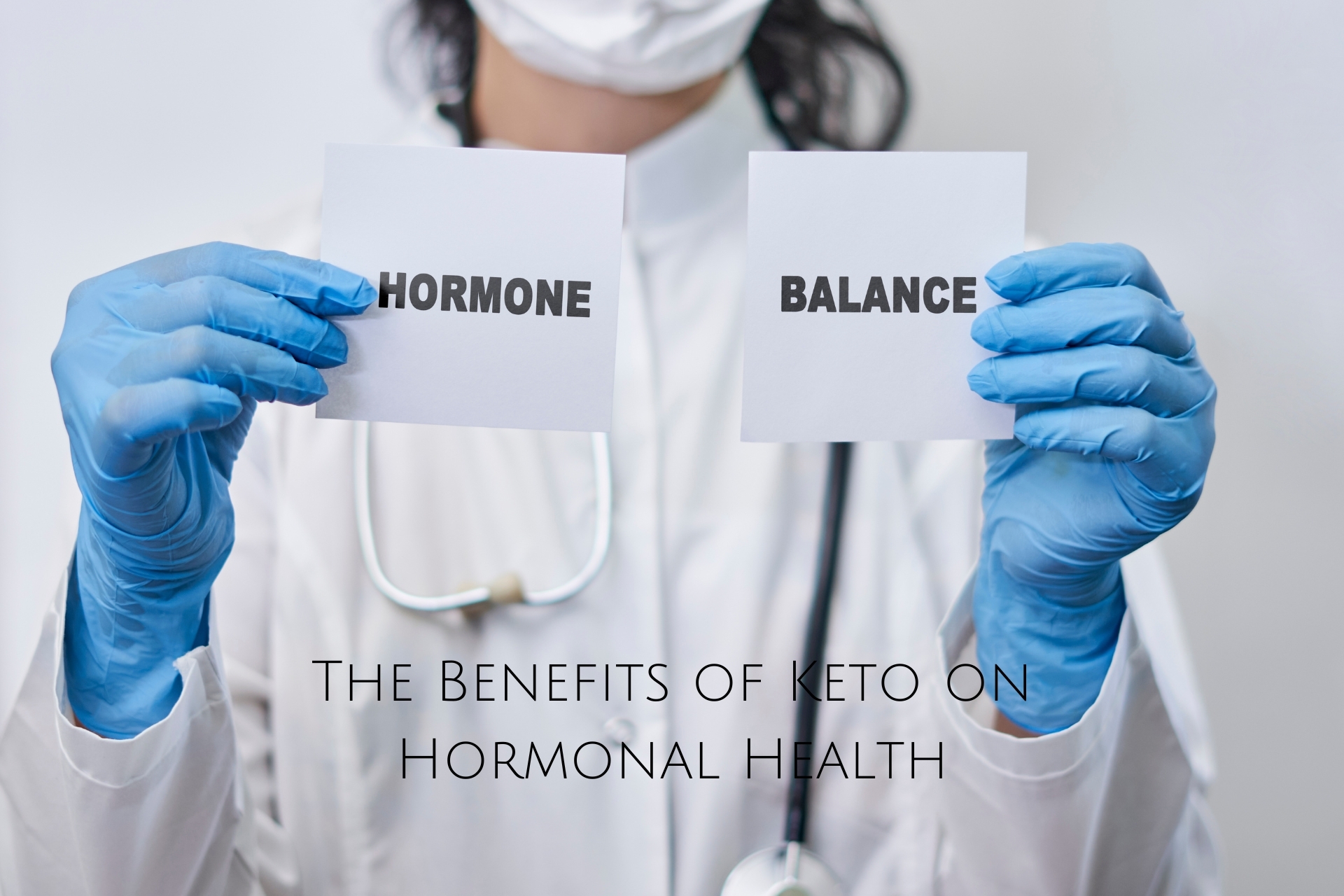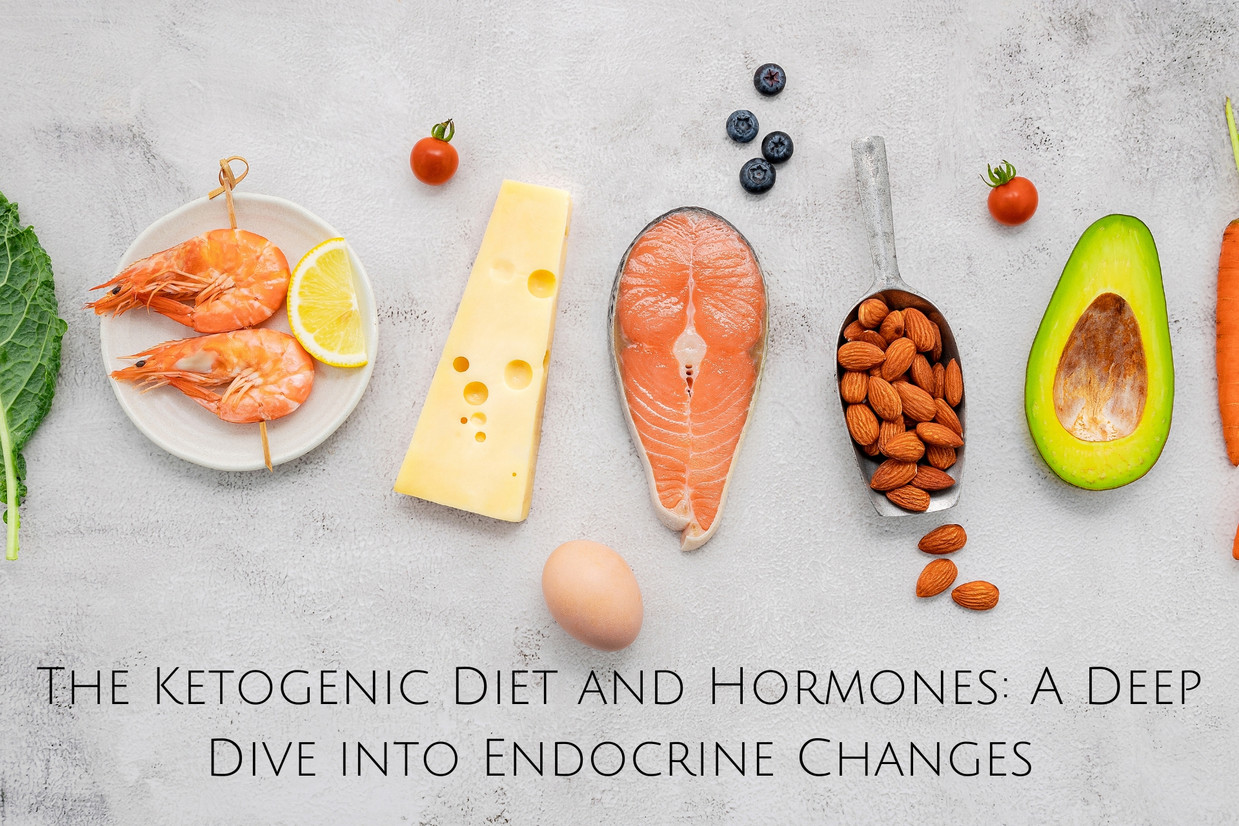The Ketogenic Diet and Hormones: A Deep Dive into Endocrine Changes
The ketogenic diet, commonly known as keto, has gained immense popularity for its potential benefits in weight loss, blood sugar management, and mental clarity. At its core, the keto diet involves consuming low carbohydrates, moderate protein, and high fats to shift the body into a state of ketosis, where fat becomes the primary fuel source instead of glucose.
While the diet's metabolic effects are well-documented, its impact on the endocrine system—our body’s network of hormone-producing glands—is a complex and fascinating area of study. From insulin to cortisol, the ketogenic diet influences a cascade of hormonal changes, offering potential benefits but also raising questions about its long-term effects on hormonal health. Let’s take a deep dive into how the keto diet interacts with your endocrine system.
Understanding the Basics: Ketosis and the Endocrine System

The endocrine system is responsible for regulating metabolism, stress responses, growth, reproduction, and more. Hormones act as chemical messengers, and any significant dietary change—like adopting a ketogenic diet—can alter their production, release, and function.
The key hormonal players influenced by keto include:
-
Insulin – Regulates blood sugar and fat storage.
-
Glucagon – Stimulates fat breakdown and glucose production.
-
Cortisol – Manages stress and energy levels.
-
Thyroid Hormones – Regulate metabolic rate.
-
Sex Hormones (Estrogen, Testosterone, Progesterone) – Influence reproductive health and energy levels.
-
Leptin and Ghrelin – Control hunger and satiety signals.
How Keto Influences Hormones: The Science Behind the Shifts

1. Insulin and Glucagon: Stabilizing Blood Sugar
One of the most immediate effects of a ketogenic diet is a drastic reduction in insulin levels. With carbohydrate intake minimized, the body produces less insulin to process glucose. This has several implications:
-
Reduced Insulin Resistance: Lower insulin levels can improve insulin sensitivity, making the keto diet beneficial for individuals with type 2 diabetes or prediabetes.
-
Increased Glucagon Levels: Glucagon, insulin’s counterpart, rises during ketosis to promote fat breakdown and gluconeogenesis (the creation of glucose from non-carbohydrate sources). This hormone shift is central to achieving and maintaining ketosis.
2. Cortisol: Stress Hormone Dynamics
The keto diet can affect cortisol levels, especially during the adaptation phase when the body is learning to use ketones as fuel.
-
Short-Term Increase: During the initial stages of keto, cortisol levels may rise as the body perceives carbohydrate restriction as a form of stress.
-
Long-Term Regulation: Once adapted, cortisol levels often normalize, and some individuals report better stress management and energy stability.
3. Thyroid Hormones: Adjusting Metabolic Rate
Thyroid hormones play a crucial role in metabolism, and the ketogenic diet can influence their levels:
-
Lower T3 Levels: Some studies suggest that T3 (triiodothyronine) levels may decrease on a keto diet. However, this does not necessarily indicate hypothyroidism or impaired thyroid function; it may simply reflect the body’s reduced reliance on glucose.
-
Improved Efficiency: Lower T3 levels on keto might represent a more efficient metabolism, as the body requires less thyroid hormone to sustain energy production.
4. Sex Hormones: Balancing Reproductive Health
The keto diet’s impact on sex hormones can vary depending on individual factors such as age, gender, and overall health.
-
For Women:
-
Keto can help balance estrogen and progesterone levels, particularly in women with polycystic ovary syndrome (PCOS). Reduced insulin levels may mitigate the hormonal imbalances often associated with this condition.
-
For Men:
-
Keto can boost testosterone levels, particularly in overweight men, as weight loss and reduced insulin resistance support hormonal balance.
-
The high-fat content of keto diets also provides essential precursors for testosterone synthesis.
The Benefits of Keto on Hormonal Health

1. Managing Insulin Resistance and Type 2 Diabetes
The ketogenic diet is particularly effective for individuals with insulin resistance or diabetes, as it reduces blood sugar spikes and lowers insulin demand.
2. Improving PCOS Symptoms
For women with PCOS, keto can regulate insulin and androgen levels, improving ovulation, weight loss, and symptoms such as acne or excessive hair growth.
3. Supporting Weight Loss and Metabolic Health
By stabilizing hunger hormones and reducing calorie intake without intense hunger, keto promotes sustainable weight loss while maintaining muscle mass.
4. Enhancing Cognitive Function
Ketones are a potent fuel source for the brain, and the ketogenic diet is associated with improved mental clarity and mood stability, which may be partly mediated by cortisol and thyroid hormone regulation.
Potential Risks and Considerations
While keto has numerous benefits, it’s not without potential risks, particularly for hormonal health:
-
Thyroid Function Concerns: Prolonged carbohydrate restriction may suppress thyroid function in some individuals, leading to fatigue or cold intolerance.
-
Reproductive Hormone Disruptions: Women with low body fat or excessive calorie restriction may experience irregular cycles or amenorrhea.
Balancing Keto with Hormonal Health

To maximize the benefits of the ketogenic diet while minimizing hormonal disruptions, consider the following strategies:
-
Gradual Transition: Ease into keto to minimize the initial stress on cortisol levels.
-
Adequate Calories: Avoid excessive calorie restriction to prevent disruptions in reproductive and thyroid hormones.
-
Carb Cycling: Incorporate periodic higher-carb days to support thyroid health and reproductive hormones, especially for women.
-
Micronutrient Support: Ensure adequate intake of magnesium, potassium, and other electrolytes to maintain hormonal balance.
-
Monitor Symptoms: Track menstrual cycles, energy levels, and mood to detect potential hormonal imbalances early.
Conclusion: The Hormonal Symphony of Keto

The ketogenic diet is more than a weight-loss strategy—it’s a metabolic intervention that profoundly influences the endocrine system. From stabilizing insulin to modulating stress hormones and even affecting reproductive health, keto’s impact on hormones is a powerful testament to the interconnectedness of diet and biology.
While the diet offers numerous benefits, its effects on hormones vary widely among individuals. By understanding the science behind these changes and tailoring the approach to your unique needs, you can harness the ketogenic diet to optimize not only your metabolism but your overall hormonal health.
Recent Posts
-
Top 10 Sunscreens You Need This Summer for Every Skin Type
Summer is here, and with it comes glorious sunshine! But while we all love soaking up those warm ray
-
The Ketogenic Diet and Hormones: A Deep Dive into Endocrine Changes
The ketogenic diet, commonly known as keto, has gained immense popularity for its potential benefits
-
The Rise of Microplastics in Food and Cosmetics: What You Need to Know
Microplastics tiny fragments of plastic less than 5 millimeters long are becoming an increasingly pr





